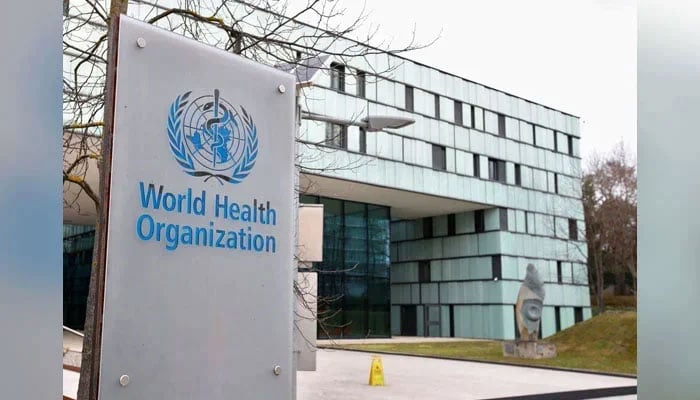WHO alert addresses three falsified batches of product of semaglutide class of medicines  A logo is pictured outside a building of the World Health Organization (WHO). — Reuters/File
A logo is pictured outside a building of the World Health Organization (WHO). — Reuters/File
ISLAMABAD: The World Health Organisation (WHO) Thursday issued a medical product alert on falsified semaglutides, the type of medicines that are used for treatment of type 2 diabetes and obesity in some countries. Pakistani drug regulatory authorities also warned the public against purchasing GLP-1 RAs, including semaglutides from online sources, saying there has been a surge of online information promoting the use of GLP-1 RA products for weight loss which is its unapproved use and this situation is encouraging risky procurement behaviors.
“Numerous online sources offer GLP-1 RA products for sale without requiring a prescription. The quality and safety of these medical products manufactured and distributed in poorly controlled environments (such as the internet) cannot be assured,” an official of the Drug Regulatory Authority of Pakistan (Drap) said.
On the other hand, the WHO alert addresses three falsified batches of product of semaglutide class of medicines (of specific brand Ozempic), which have been detected in Brazil in October 2023, the United Kingdom of Great Britain and Northern Ireland in October 2023, and the United States of America in December 2023.
WHO Global Surveillance and Monitoring System (GSMS) has been observing increased reports on falsified semaglutide products in all geographical regions since 2022. This is the first official notice issued by the WHO after confirmation of some of the reports.
“WHO advises healthcare professionals, regulatory authorities and the public to be aware of these falsified batches of medicines,” said Dr Yukiko Nakatani, WHO Assistant Director-General for Essential Medicines and Health Products. “We call on stakeholders to stop any usage of suspicious medicines and report to relevant authorities.”
The semaglutides, including the specific brand product that has been falsified, are prescribed to people with type 2 diabetes in order to lower their blood sugar levels. Semaglutides also reduce the risk of cardiovascular events.
Most semaglutide products must be injected under the skin on a weekly basis but they are also available as tablets taken by mouth daily. These medicines are shown to suppress appetite in addition to lowering blood sugar levels, and therefore are being increasingly prescribed for weight loss in some countries.
WHO has been observing increased demand for these medicines as well as reports on falsification. These falsified products could have harmful effects to people’s health; if the products don’t have the necessary raw components, falsified medicines can lead to health complications resulting from unmanaged blood glucose levels or weight. In other cases, another undeclared active ingredient may be contained in the injection device, e.g. insulin, leading to an unpredictable range of health risks or complications. Semaglutides are not part of WHO-recommended treatments for diabetes management due to their current high cost. The cost barrier makes these products unsuitable for a public health approach, which aims to ensure the widest possible access to medicines at the population level and to strike a balance between the best-established standard of care and what is feasible on a large scale in resource-limited settings. Also, there are more affordable treatments available for diabetes, with similar effects to those of semaglutides on blood sugar and cardiovascular risk.
WHO is currently working on a rapid advice guideline on possible use of GLP-1 RAs, including semaglutides, for treatment of obesity in adults and as part of a more comprehensive model of care. The term GLP-1 RAs stands for glucagon-like peptide-1 receptor agonists, which include semaglutides, for a class of medicines used for diabetes treatment to lower blood sugar and support weight loss. To protect themselves from falsified medicines and their harmful effects, patients who are using these products can take actions such as buying medicines with prescriptions from licensed physicians and avoid buying medicines from unfamiliar or unverified sources, such as those that may be found online.
People should always check packaging and expiry dates of medicines when they buy them, and use the products as prescribed, WHO said, adding that in the case of injectable semaglutides, patients should ensure they are stored in the refrigerator.











